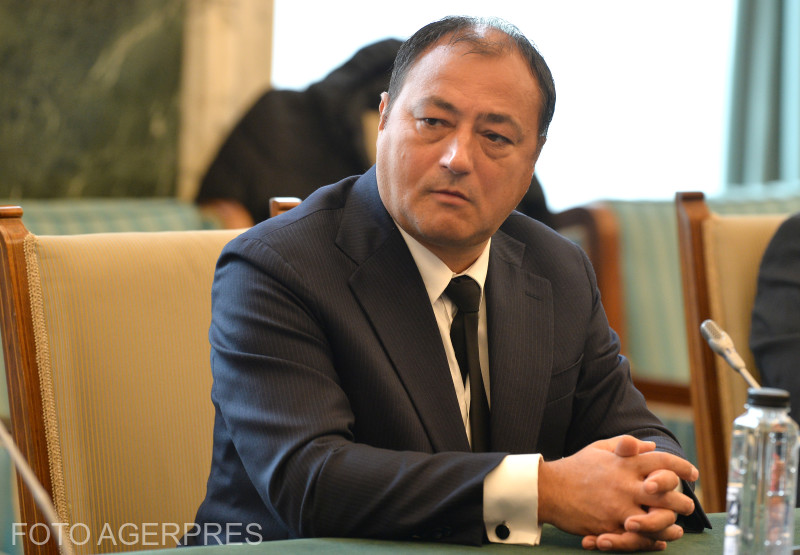#politicians #serve #interests #Kremlin #Fidesz #vote
Some elected European Union politicians and parties consciously serve the interests of the Russian leadership, thereby undermining the unity and democracy of the EU, according to the resolution adopted by the European Parliament on Thursday.
At the final vote on the text, 433 voted yes, 56 voted no and 18 abstained. According to the MEPWatch data, Fidesz representatives did not belong to any group: none of the 12 representatives cast a vote – even though several party members voted on other topics in the bloc that day. Former MSZP István Ujhelyi, who is a politician in the partially self-founded Esély Community, Jobbik chairman Márton Gyöngyösi and the DK members present said yes to the proposal. No votes were registered for György Hölvényi from the KDNP and the members of the Momentum, just like on other occasions that day.
The major government party missed out on pressing the voting button in such a way that the final text mentions several EU countries, parties and politicians, but neither Fidesz, nor Hungary, nor Viktor Orbán are named among them. As an example of Russian influence, he cites German, French, Slovak and Catalan examples, among others. The MPs were outraged that Russia provides significant funding to political parties, politicians and movements in several member states, often in violation of the law, to interfere in democratic processes. Examples include bank loans, purchase and trade agreements. In the resolution, the representatives demand a thorough investigation due to the recently published news, according to which Latvian MEP Tatjana Ždanoka allegedly acted as an informant for the Russian security service, FSB. (During the debate on the proposal, the politician claimed that he was an agent of peace, and Tamás Deutsch called the EP a hypocrite for slowly deciding on the immunity of former Jobbik MP Béla Kovács, convicted of espionage, and for listening to the opposition’s 2022 campaign from the United States about grants received.)
The Hungarian representatives voted (or did not vote) exactly the same way on the resolution condemning actions against the Belarusian opposition as on the resolution on Russian influence. In the shadow of the recent wave of arrests, the EP urged the Belarusian regime to end the repression with 459 yes, 14 no and 33 abstentions. The representative body demanded the immediate and unconditional release of more than 1,400 political prisoners, and asked member states for tougher sanctions. (The latter can only be decided unanimously by the governments of the EU countries.)
Earlier, EUrologist pointed out that Fidesz representatives sometimes – especially on human rights issues – do not vote by voting before and after, i.e. in principle they were present or at least nearby. Abstention is practically the same as not casting a vote.
As usual, Thursday’s polls were arranged in one block. The evaluation of the Serbian elections was also decided in this bloc, while the Greek rule of law was decided on Wednesday. Fidesz said no to the condemning resolutions both times, DK and István Ujhelyi said yes both times. Jobbik agreed with the evaluation of the Serbian elections, but rejected the Greek situation.
In the latter, the KDNP and the Momentos also cast their votes. The left-wing parties collected 330 yes votes, the right-wing parties 258 no votes. In Greece, the largest center-right political group, the European People’s Party, is in government. The EP condemned, among other things, threats against journalists – partly from high-ranking politicians – and the deployment of spy programs. According to the majority of representatives, the investigation into the murder of a criminal journalist, Jorgosz Karaivaz, in 2021 is not progressing well enough. Among other things, the board requests that the direct control of the secret services by the Prime Minister be revoked, that two former transport ministers be investigated, as requested by the EU prosecutor’s office, and that the European Commission consider all means, for example the conditional rule of law procedure – which has only been launched against Hungary so far .
During the Serbian elections last December, the EP objected to the organized attacks on observers, including EU representatives, the secrecy of the election was repeatedly violated and the misuse of citizens’ data, but there were also examples of group voting, manipulation of registration and fake signatures. The board demanded an independent investigation and noted that the normal functioning of Serbian democratic institutions is also a condition for EU accession. The resolution was adopted with 461 in favor, 53 against and 43 abstentions. According to MEPWatch, the vast majority in the factions (with the exception of the far-right Identity and Democracy) supported the final text. So did the center-right European People’s Party, which includes the KDNP, as well as the majority of Eurosceptic European Conservatives and Reformers selected by Fidesz.
According to Andor Deli, a member of the European Parliament of Fidesz from Vojvodina, the left-liberal majority of the European Parliament did not hide their malice and frustration and voted for the document condemning Serbia. The EP “sends a very bad message to Serbia by not trusting the expertise of the country’s authorities and by its decision demanding an international investigation to investigate possible irregularities arising in connection with the December elections. The elections are the internal affairs of a sovereign state – and the citizens of Serbia voted with a large majority for the national-conservative side, and the left-liberal majority of the European Parliament should respect this as well.”
According to Gál Kinga, the president of the Fidesz EP representative group, the decision containing offensive and unfounded criticisms once again proves that if the sovereignist forces win, the left-wing majority of the EP will not respect the final result of the democratic elections. “This is a pure double standard and a mockery of democratic principles. It is time to end the practice of left-liberals educating sovereign states and their citizens about democracy while turning a blind eye to real violations.” The criticisms destroy the relationship between the EU and Serbia, thereby fundamentally shaking the integration of the country and trust in the EU institutions. “This disruptive behavior is harmful to Europe as a whole, so a change is needed in the EP elections in June,” the politician emphasized.
On Thursday, the EP also condemned the socialist Venezuelan regime for preventing opposition politicians from participating in the presidential election. According to the resolution, the government’s actions violate last year’s agreement on this year’s free election. Among other things, the panel calls for tougher sanctions against the regime. The resolution was adopted with 446 yes, 21 no and 32 abstentions. Among the factions, only the majority of the far-left GUE/NGL said no. All voting Hungarian representatives supported the final text, including several from Fidesz. The situation in Venezuela was voted on immediately after the resolution criticizing Russian influence.












